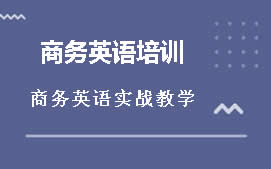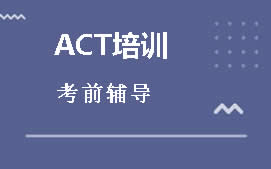英国的员工评价每星期要花四分*的時间来解决每日收取和发送的不计其数封电子邮件。
殊不知,虽然大家每日都会回复邮件,职业发展具体指导师芭芭拉·帕切特却表明,很多岗位人员仍不清楚怎样适当地应用电子邮件。
实际上,因为大家每日都是会阅读文章和撰写很多的信息内容,大家很有可能更非常容易做出让人难堪的不正确,而这种不正确会造成 比较严重的岗位不良影响。
帕切特在她的《商务礼仪要点》一书里简述了当代电子邮箱礼仪知识的基本知识。大家选择了你*须了解的这些最重要的标准。
1. Include a clear, direct subject line.
电子邮件要有清楚一目了然的主题风格
Examples of a good subject line include "Meeting date changed," "Quick question about your presentation," or "Suggestions for the proposal."
好的主题风格包含:“大会改退”“关于你简讯的一些小问题”或“策划书提议”。
"People often decide whether to open an email based on the subject line," Pachter says. "Choose one that lets readers know you are addressing their concerns or business issues."
大家是不是会开启一封电子邮件,一般在于主题风格的內容,”帕切特说。“写题目时,要能让电子邮件接受者了解你的电子邮件是她们管鑫的难题,是和业务流程有关的事。”
2. Use a professional email address.
应用一个技术专业的邮箱地址
If you work for a company, you should use your company email address. But if you use a personal email account — whether you are self-employed or just like using it occasionally for work-related correspondences — you should be careful when choosing that address, Pachter says.
帕切特强调,假如你为企业工作中,你应该应用企业的电子邮箱详细地址。但假如你应用本人的电子邮件帐户,不管你是个体工商户還是仅仅有时候应用它来解决工作中有关的信函,在挑选推送的邮箱地址时要慎重。
You should always have an email address that conveys your name so that the recipient knows exactly who is sending the email. Never use email addresses (perhaps remnants of your grade-school days) that are not appropriate for use in the workplace, such as "babygirl@..." or "beerlover@..." — no matter how much you love a cold brew.
你应该有一个带有你姓名的电子邮箱详细地址,那样电子邮件接受者就可以了解到底是谁发过来的电子邮件。不管你多么的钟爱之前建立的电子邮箱详细地址,千万别应用不适合工作场所应用的电子邮箱详细地址(或许是中小学一直采用如今的呢称),如“babygirl@...”“"beerlover@...” 等,不管你有多喜欢喝酒,都不能用。
3. Think twice before hitting 'reply all.'
点“回应所有”前应三思
No one wants to read emails from 20 people that have nothing to do with them. Ignoring the emails can be difficult, with many people getting notifications of new messages on their smartphones or distracting pop-up messages on their computer screens. Refrain from hitting "reply all" unless you really think everyone on the list needs to receive the email, Pachter says.
帕切特说,没人要想阅读文章20个与自身没什么有关的人发过来的电子邮件。由于很多人的手机都是有新消息通知,电脑显示屏上也是有弹出来的消息提醒,因此 忽视这种电子邮件不大可能。尽可能避应用免“回应所有”作用,除非是你确实觉得收货人目录里的每一个人都*须接受这封电子邮件。
4. Use professional salutations.
应用技术专业的宣布称呼
Don't use laid-back, colloquial expressions like, "Hey you guys," "Yo," or "Hi folks."
不必应用散漫或是英语口语的表述,例如“嘿好哥们”“哟”或是是“嗨兄弟”。
"The relaxed nature of our writings should not affect the salutation in an email," she says. "Hey is a very informal salutation and generally it should not be used in the workplace. And Yo is not okay either. Use Hi or Hello instead."
她讲:“大家创作上轻轻松松当然的语调不应该危害到一封电子邮件里的宣布称呼。嘿(hey)是一个十分不宣布的称呼,一般地,它不应该在工作中场所应用。‘哟’(Yo)也不能。要应用嗨(Hi)或是哈罗单车(Hello)。”
She also advises against shortening anyone's name. Say "Hi Michael," unless you're certain he prefers to be called "Mike."
她另外也提议不必简称所有人的姓名。一般应当说“嗨!Michael,”除非是你确定他更喜欢被叫法为“Mike”。
5. Reply to your emails — even if the email wasn't intended for you.
要回应你接到的电子邮件,即便 那封电子邮件并不是写給你的。
It's difficult to reply to every email message ever sent to you, but you should try to, Pachter says. This includes when the email was accidentally sent to you, especially if the sender is expecting a reply. A reply isn't necessary but serves as good email etiquette, especially if this person works in the same company or industry as you.
要回应全部接到的电子邮件有一定的艰难,但你应该试着那么做。要回应的电子邮件也包含这些错发给你的电子邮件,尤其是这些电子邮件传出者期待获得回应的电子邮件。回复邮件并不是一件必需的事,但这主要表现出了本身优良的邮件礼仪,尤其是假如这一电子邮件传出者和你一直在同一家企业或是是同一领域工作中。
Here's an example reply: "I know you're very busy, but I don't think you meant to send this email to me. And I wanted to let you know so you can send it to the correct person."
能够按照这一样本回应:“因为你十分忙,但是我认为这封电子邮件并并不是发送给我的。写这一电子邮件让你是为了更好地提示你一下,好让你将电子邮件发送给本应接受的那人。”
6. Proofread every message.
复诊每一条信息内容
Your mistakes won't go unnoticed by the recipients of your email. "And, depending upon the recipient, you may be judged for making them," Pachter says.
电子邮件收货人会注意到你的不正确。“并且,一些收货人会依据你犯的不正确对你作出点评。”
Don't rely on spell-checkers. Read and re-read your email a few times, preferably aloud, before sending it off.
不必寄希望于系统软件的拼写检查。在邮件发送以前,不断多读几回,**大声地读你的电子邮箱。
"One supervisor intended to write 'Sorry for the inconvenience,'" Pachter says. "But he relied on his spell-check and ended up writing 'Sorry for the incontinence.'"
“一个负责人原本想写‘导致麻烦倍感很抱歉’('Sorry for the inconvenience’),但他太坚信他的拼写检查程序流程,結果写出了‘小便失禁倍感很抱歉’(Sorry for the incontinence)。”
7. Add the email address last.
最终加上(收货人)邮箱地址
"You don't want to send an email accidentally before you have finished writing and proofing the message," Pachter says. "Even when you are replying to a message, it's a good precaution to delete the recipient's address and insert it only when you are sure the message is ready to be sent."
“在你进行电子邮件內容和审校信息内容以前,你毫无疑问不愿一不小心把发送邮件了出来。即便 是在回复邮件时,删除收货人的邮箱地址也是一个非常好的防范措施,仅有在你确定电子邮件內容早已进行之后才键入收货人详细地址。”
8. Double-check that you've selected the correct recipient.
认真仔细,确定你挑选的是恰当的收货人
Pachter says to pay careful attention when typing a name from your address book on the email's "To" line. "It's easy to select the wrong name, which can be embarrassing to you and to the person who receives the email by mistake."
帕切特表明,在收货人一栏上,从详细地址簿里挑选键入收货人的情况下,*须分外慎重留意。“大家非常容易挑到不正确的收货人,这不管对你還是哪个错接到这封电子邮件的人而言都非常尴尬。”
9. Keep your fonts classic.
维持应用经典字体
Purple Comic Sans has a time and a place (maybe?), but for business correspondence, keep your fonts, colors, and sizes classic.
Purple Comic Sans或许曾风靡一时,但针对商务信函而言,字体样式、色调和尺寸应延用經典款式。
The cardinal rule: Your emails should be easy for other people to read.
基础标准:你的电子邮件应当便捷别人阅读文章。
"Generally, it is best to use 10- or 12- point type and an easy-to-read font such as Arial, Calibri, or Times New Roman," Pachter advises. As for color, black is the safest choice.
“一般地,**是应用10或12的字体大小,并采用便于阅读文章的字体样式,如Arial,,Calibri或是Times New Roman,”帕切特提议。对于色调,灰黑色是更为安全性的挑选。
10. Nothing is confidential — so write accordingly.
没什么可以保密性,因此 别胡写。
Always remember what former CIA chief General David Petraeus apparently forgot, warns Pachter: Every electronic message leaves a trail.
要还记得前联邦调查局厅长彼得雷乌斯大将的经验教训:每一个电子信息技术都是会留有印痕。
"A basic guideline is to assume that others will see what you write," she says, "so don't write anything you wouldn't want everyone to see." A more liberal interpretation: Don't write anything that would be ruinous to you or hurtful to others. After all, email is dangerously easy to forward, and it's better to be safe than sorry.
“一个基础的战略方针是要假定他人会见到你所作的物品,”她讲,“因此 不必写一些你不想所有人要看获得的物品。”更广泛的表述是:不必写这些对本身或别人危害的內容。终究,电子邮件非常容易被分享,因此 有相对性的危险因素,考虑到安全性总比他日后悔莫及好些。










